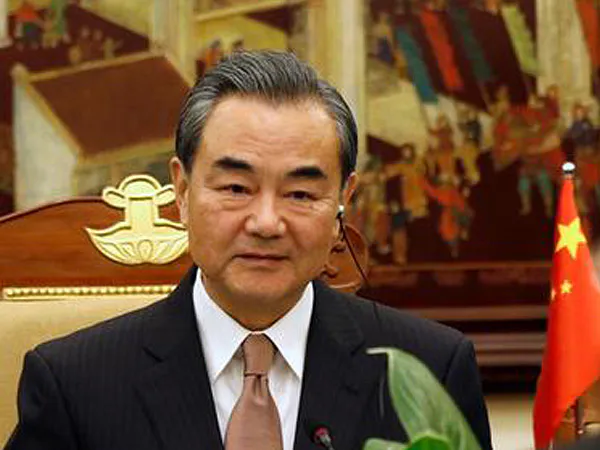Two months after the UN Human Rights chief Michelle Bachelet visited Xinjiang in China with reports that Bachelet’s visit was tampered with and that she was not allowed to speak on detainment of Uyghurs, Chinese Foreign Minister Wang Yi is now inviting Turkey to visit the region saying that it is “open and transparent”.
This comes as Chinese Foreign Minister Wang Yi met with Turkiye’s Foreign Minister Mevlut Cavusoglu on Wednesday on the sidelines of meetings of foreign ministers on East Asia cooperation.
Cavusoglu said his country firmly adheres to the one-China policy not only on the Taiwan question but also on issues concerning Xinjiang, adding that the Turkish side was glad to see United Nations High Commissioner for Human Rights Michelle Bachelet visit Xinjiang, and hopes to keep contact with China over affairs related to the visit to Xinjiang by a Turkish delegation, reported Xinhua.
Noting that Xinjiang affairs are part of China’s internal affairs, Wang said China has always taken an attitude of being “open and transparent” on issues related to Xinjiang, and expects to welcome the arrival of the Turkish delegation.
China circulated a letter urging UN High Commissioner for Human Rights Michelle Bachelet to bury a report on human rights violations in Xinjiang, according to UK-based media.
China has been urging to bury the report among diplomatic missions in Geneva since late June, asking countries to sign it to show their support.
Bachelet has been facing severe criticism for being too soft on China during a May visit in what could have been a golden chance to investigate the human rights situation in areas like Xinjiang and Tibet and to hold Beijing accountable for its abuses against Uyghurs and Tibetans, but it seems that the first visit of the rights body chief turned out to be a “wasted historic opportunity”.
The first visit of a UN Chief in 17 years to China has made the world question the role of the United Nations in this era and the extent of influence China holds in twisting opinions and moulding narratives.
The Global Times reported that the statement by the UN rights chief at the end of her trip stressed that her trip was not an “investigation” and that this was “an opportunity to hold direct discussions – with China’s most senior leaders” on areas including “human rights” “was a slap to the Western countries”.
Another Chinese media CGTN stated that the visit provided “a chance to clarify the situation and dispel a lot of misinformation and other things that have been put out”.
After the six-day trip to China, Bachelet provided no transparency about the trip and that a prison visit in Xinjiang was a “Potemkin-style sham,” Radio Free Asia (RFA) reported citing the Washington-based Campaign for Uyghurs.
“The high commissioner has disgraced herself and her office by refusing to investigate China’s genocide and adopting, repeating the Chinese regime’s narrative, further cementing their propaganda in the UN,” Rushan Abbas, the organization’s executive director, told RFA.
“Her comments seem custom-made for Beijing’s propaganda machine, and she neglects the duties of her office and the founding principle of the UN,” she said. Abbas called on Bachelet to step down from her post.
Bachelet, meanwhile, said that she would not seek a second term for personal reasons.
Following Bachelet’s highly disappointing visit, the World Uyghur Congress (WUC) strongly urged her office to release her independent assessment of the situation in East Turkistan, as a show of willingness to hold the Chinese government accountable for crimes against humanity and genocide being committed.
The International Campaign for Tibet (ICT) has expressed disappointment with the Bachelet’s visit to China, saying this trip has given a “political victory” to the Communist regime.
According to the Tibetan group, the UN rights chief adopted the Chinese Communist Party’s framing of policies, domestically and internationally.
Dozens of rights groups say the Chinese government has committed widespread abuses and systematic policies of mass detention, torture, cultural persecution, and other offences against Uyghurs and members of other Turkic groups in Xinjiang that amount to crimes against humanity.

